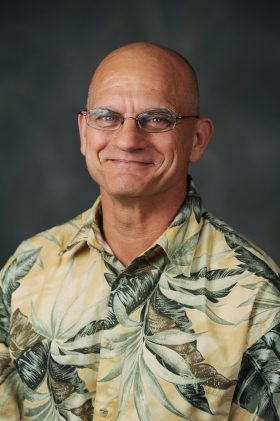Professor Tom Arcaro writes in a newspaper column that Americans should consider what the author of "Common Sense" had to say about patriotism and religion.
The following column was published recently in the Roanoke (Va.) Times, the Greenville (N.C.) Daily Reflector, the Henderson Daily Dispatch and the Durham (N.C.) Herald-Sun via the Elon University Writers Syndicate. Viewpoints shared by this syndicate are those of the author and not of Elon University.
*****

By Tom Arcaro
“Independence is my happiness, and I view things as they are, without regard to place or person; my country is the world, and my religion is to do good.” – Thomas Paine, The Rights of Man
Consider me relieved that the flag waving and fireworks of the Fourth of July are behind us. As a scholar who appreciates irony, I can’t help but notice that lost within our celebrations each year is the fact that leading voices in our fight for independence cautioned against this very same patriotic myopia.
Influential ideas from Thomas Paine, whose works inspired tens of thousands of people to align against Great Britain at the dawn of the Revolution, likely would be dubbed “un-American” today by those who believe the red, white and blue can do little wrong.
The anti-nationalism implicit in Paine’s words is not a new idea, nor, importantly, is it negative. “My country is the world” argues that we are in this together and Earth would be a better place if we treated all humans as brothers in sisters bound by a common humanity. Instead of thinking in terms of nations – and hence in a necessarily “us and them” manner – we would be better to embrace our global citizenship.
From the “blue dot” perspective one gets from outer space, we clearly are only an “us.”
Human nature, however, is such that whenever we see A is different than B (and we are A), there is a nearly irresistible urge to make the leap to the conclusion that A is better than B. We are all fundamentally ethnocentric and perhaps, by extension, even racist.
Our cultural learning thankfully counters these tendencies and we can and do learn to live together, though the painful exceptions to this are both local – Trayvon Martin comes to my mind – and global, with the 1994 Rwandan genocide still raw in our collective memories.
One of the more dominant themes in our nationalistic rhetoric is embodied in the oft-used phrase “God Bless America.” Put in hyper-drive by the anti-communism of the Cold War in the 1950s, we have conflated religiosity and nationalism in ways that make it such that, in many people’s minds, you can’t be a good American without being both nationalistic and religious.
The poison that is extreme nationalism, often linked with overtones of racism, is indeed one of the major sources of much human discord, past and present, both locally and globally. Certainly Hitler’s Germany was both hyper nationalistic and obscenely racist.
Extreme nationalism’s tunnel-visioned twin, religious fundamentalism, has also been a net negative force in world history. Our fight against terrorism is, after all, largely a struggle with religious zealots who feel called to kill in order to move the world in the direction dictated by their god. This is what drove the Al Qaeda team into the World Trade Center, yes?
Here is what it means to be anti-nationalistic and atheistic: To see oneself as first a global citizen who believes that “to do good” is what we should all do just because it is right, not because it has been decreed from some deity.
Given what I believe, there are many who would call me a fool or at least a non-pragmatist that is woefully out-of-touch with the “real world.” The emotional and historical pull of both nationalism and religiosity are positive and permanent features of our lives, they might argue, and I would agree to some extent.
But I would also argue that the man who wrote “Common Sense” might have something to teach us about how to think about the world.
Tom Arcaro is a professor of sociology at Elon University.
*****
Elon University faculty with an interest in sharing their expertise with wider audiences are encouraged to contact Eric Townsend (etownsend4@elon.edu) in the Office of University Communications should they like assistance with prospective newspaper op/ed submissions.


